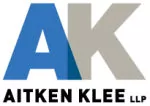Back in 2014, the Federal Court issued its judgment in Teva's section 8 damages action in relation to the drug venlafaxine. On appeal, the Court ruled that certain pieces of evidence used at trial were inadmissible hearsay and remitted the matter back to the Federal Court for a redetermination on the record, excluding the hearsay evidence.
The Federal Court recently issued its judgment from that redetermination. Teva was successful on all grounds and Justice Zinn ordered that the Trial Judgment is reaffirmed and reissued.
As a preliminary issue, the Court rejected Pfizer's attempt to object to the admissibility of evidence which was not the subject of the appeal and against which Pfizer had not raised any objection at trial. On a redetermination, the principle of fairness dictates that the Court deal with the record as it stands and not as one party might wish it to stand. Justice Zinn noted that there was no opportunity to cure any deficiency or to supplement a party's case by leading other evidence, whereas this could have been done had the objection been raised at trial. The Court further noted that this approach was consistent with the direction provided by the Court of Appeal's decision, which recognized that evidence may be considered on the reconsideration because no objection was made at trial to that evidence being received: "Yet there is admissible evidence or evidence not objected to in the record that might conceivably bear on these matters..."
Following the instructions given by the Court of Appeal, the redetermination addressed the following three questions
- Would Ratiopharm and its supplier have wanted to supply the market in the but-for world?
- Could Ratiopharm and its supplier have supplied the market?
- If yes, then would and could Ratiopharm have access to sufficient quantities to supply all or a part of the generic market?
The "Would Have" Analysis
The Court found "there is ample admissible evidence from which to conclude on the balance of probabilities that Ratiopharm wanted to supply the market with generic venlafaxine and that [the supplier] wanted and was willing to produce it for Ratiopharm." Ratiopharm had entered two agreements with its supplier: one for the development of the product and a second for the manufacture of the product. In the real world, the supplier had manufactured API and venlafaxine capsules for Ratiopharm pursuant to these agreements. Ratiopharm inspected its supplier's facilitates and had them certified by Health Canada. Ratiopharm filed its ANDS and Health Canada issued a patent hold letter. The supplier also expressly committed to "supply exclusively to ratiopharm ... all of ratiopharm's requirements of Product."
The "Could Have" Analysis
The Court noted that much of the evidence from the prior analysis was also relevant to the "could have" analysis. In addition, Ratiopharm had placed orders in the real world for the purpose of a launch, which were cancelled due to the prohibition proceedings, holding that it was:
... a reasonable and logical inference from the evidence that but-for Ratiopharm stopping production because of the wrongful conduct of Wyeth, [Ratiopharm's supplier] was in a position to be able to produce sufficient quantities of the product to permit Ratiopharm to commence and continue marketing its generic Venlafaxine.
The Portion of the Market Analysis
Having found that Ratiopharm would and could have supplied the market, the question became whether Ratiopharm had access to sufficient quantities to supply the entire market. The Court rejected as "illogical" Pfizer's argument that if Ratiopharm could not have supplied the entire market, the only other alternative was to find that Ratiopharm could not have supplied any of it.
In any event, the Court found that Ratiopharm would and could have supplied the entire generic venlafaxine market, holding that Ratiopharm would have ramped up sales in the first 12-month period and that it had measures in place to ensure adequate supply. In coming to this conclusion, the Court also relied upon:
- The contractual commitment made by Ratiopharm's supplier to supply "all of ratiopharm's requirements" for generic Venlafaxine;
- The existing relationship between Ratiopharm and its supplier;
- The encapsulating capacity of the supplier;
- The surplus capacity of the supplier in the Relevant Period; and
- The steps to which Ratiopharm would go to occupy the entire Canadian generic market.
Teva was represented by David Aitken, Marcus Klee and Devin Doyle from Aitken Klee LLP.
A copy of the judgment can be found here.
Pfizer has appealed.
The content of this article is intended to provide a general guide to the subject matter. Specialist advice should be sought about your specific circumstances.


